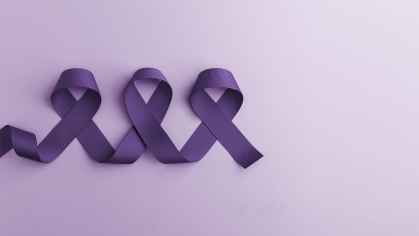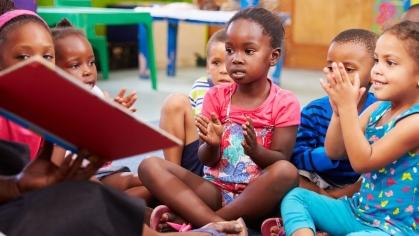Every November since 2008, Caregiver Action Network (CAN) has spearheaded the celebration of National Family Caregivers Month to recognize and honor family caregivers who provide support for loved ones with disabilities, disease, and conditions related to aging. According to CAN, the nation’s leading family caregiver organization, more than 90 million Americans are considered family caregivers.
At Rutgers School of Social Work, a group of dedicated students are committed to improving access to information and services for a particular subset of family caregivers: those supporting adults living with autism. Family members and caregivers of autistic adults are too often overlooked in terms of their lifelong need for information and services as they help their loved one navigate adult life.
With the support of The Daniel Jordan Fiddle Foundation, each year, Rutgers School of Social Work names selected students as The Daniel Jordan Fiddle Foundation Fellows who contribute to a resource guide for caregivers to adults living with autism. The ongoing goal of the resource guide is to provide a community service that enhances access, in a user-friendly format, of the complex informational system. This database consists of more than 150 agencies and services throughout New Jersey and the United States searchable by location, as well as service type (e.g., housing, support groups, recreational activities, and more). In addition, Fellows complete their field work in agencies that serve this population.
Lauren Snedeker, Assistant Professor of Teaching, Director of the Certificate on Aging & Health, coordinates The Daniel Jordan Fiddle Foundation Fellowship said, “As a social worker myself, working with caregivers that experience all different variations of supporting someone else with different abilities and needs, I see the importance of ensuring social work students are prepared to engage with all caregiving experiences, such as those related to autism spectrum disorder. Parents of an adult living with autism spectrum disorder experience a unique caregiving situation, one that likely begins much earlier in the care receiver's life, is unique to the person and family, and one that social workers can effect across the lifespan of both the care receiver and caregiver. It is an honor to work with the foundation and bring more attention to this experience on behalf of the School of Social Work.”
As the Founder and Executive of The Daniel Jordan Fiddle Foundation, the benefactor of The Daniel Jordan Fiddle Foundation Adult Autism Lifelong Family Support and Resource Guide Fund at Rutgers School of Social Work, Linda J. Walder is acutely aware that the lifespan journey of the individual diagnosed with autism deeply impacts their family members. "When Dean Potter and I established the only endowment fund in the world focused on the family members of adults with autism, we aimed to recognize and support the complex, life-altering challenges and commitment of family members who are also on the lifespan journey of autism with their loved one,” said Walder.
“Resources and support for the family members as they navigate their loved one's adult life and come to terms with their own lives are vital,” Walder added. “As a society we need to recognize the heroes and heroines in the autism community who are unsung, namely the family of the individual with autism. The Daniel Jordan Fiddle Foundation fellowships and web-based resource guide offer well-deserved recognition to the supporting cast in the life story of individuals with autism."
Bria Styles is an MSW student at Rutgers School of Social Work and one of The Daniel Jordan Fiddle Fellows conducting a field placement with the family institute at The Arc of New Jersey. She assists families and caregivers in navigating services and programs for individuals with intellectual or developmental disabilities.
“This work is extremely valuable because disability services can be extremely difficult to navigate for professionals who are trained to do so and even more frustrating for families who have little to no experience with these systems,” Styles said. “Families and caregivers having someone to empathize with their frustrations and assist with the process makes things much more feasible.”
Styles believes observing National Caregiver Month is so important because it is often a thankless job. “Caregivers deserve to be honored and recognized for all that they do and for the world to know how they can support them as they support their families,” she said.”
Fellow MSW student Robert Bell is another DJFF Fellow who works with students and parents, guiding students towards success while providing parents with information and resources regarding the care of their child. “Simply put, the work I have been able to conduct as a DJFF Fellow has been immensely impactful due to guided instruction of the sophisticated Rutgers MSW staff and contributors,” Bell said.
“The value of this work continues to shape itself everyday, with every client and family interaction” he continued. “Seeing the impact one can have as a caregiver and a Daniel Jordan Fiddle Fellow firsthand is unlike any feeling I have ever experienced. It is hard to put the value of this work into words, but if I were to try to explain, it would be measured on the positive impact my experience has had on the lives of the individuals and their families. This devotion to making clients’ lives better is valuable to the client, family, and society.”
Bell says recognizing caregivers this month allows for this important and often unsung work to be acknowledged and allows those who provide care to express their own needs while being extolled for their work.



